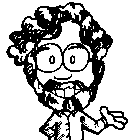Supporting the Growth of Scratch
More and more children around the world are programming stories, games, and animations with Scratch. Last year, more than 20 million children created Scratch projects. With the recent launch of Scratch 3.0, our new generation of Scratch, even more children are creating and sharing with Scratch — and, in the process, developing their abilities to think creatively, reason systematically, and work collaboratively.
As Scratch has grown, we’ve been steadily expanding the Scratch Team — the group of people who design, develop, and manage the Scratch programming language, online community, learning resources, outreach initiatives, and educational research. In the Lifelong Kindergarten research group at the MIT Media Lab, we now have about 35 people working on Scratch, including full-time staff members and graduate students.
To support the continuing growth of Scratch (and the Scratch Team), we’re making some organizational changes. We’re expanding our Scratch Foundation, an independent nonprofit organization, so that it can play a lead role in the design, development, and support of Scratch. This new setup will provide us with greater flexibility and opportunities in partnerships, hiring, and funding. We’ll be opening a new headquarters office for the Scratch Foundation in Boston, and also hiring a new Executive Director to manage the expanded Foundation (see job announcement).
Meanwhile, graduate students and researchers in the Lifelong Kindergarten group at the MIT Media Lab will continue to work actively on Scratch research projects, collaborating closely with the Scratch Foundation. We feel that the strong collaboration between the Lifelong Kindergarten group and the Scratch Foundation offers the best of both worlds, positioning Scratch for continued innovation in research, design, development, and outreach.
As we make these organizational changes, we will continue to be guided by the same values, vision, and mission that have made Scratch the world’s largest coding community for kids. We will always be committed to providing Scratch for free — and empowering all children, from all backgrounds, to imagine, create, share, and learn.
Mitchel Resnick is Professor of Learning Research at the MIT Media Lab, Director of the Lifelong Kindergarten research group, and Chair of the Scratch Foundation.
Our work on Scratch depends on donations from people around the world. If you would like to help expand creative learning opportunities for children everywhere, please consider making a donation to the Scratch Foundation.
